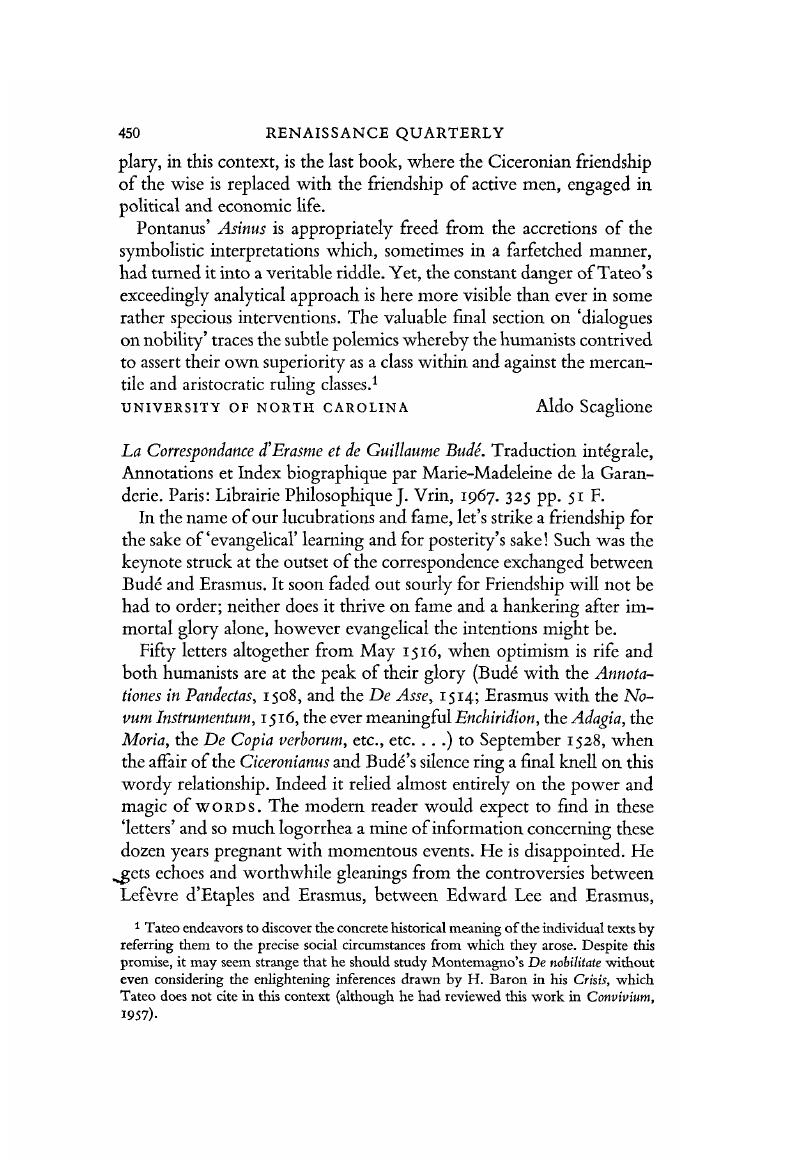No CrossRef data available.
Article contents
La Correspondance d'Erasme et de Guillaume Budé. Traduction intégrale, Annotations et Index biographique par Marie-Madeleine de la Garanderie. Paris: Librairie Philosophique J. Vrin, 1967. 325 pp. 51 F.
Published online by Cambridge University Press: 20 November 2018
Abstract

- Type
- Reviews
- Information
- Copyright
- Copyright © Renaissance Society of America 1968
References
1 They must have met in Paris long before both had any idea of an official epistolary give and take. The text of letter 906, p. 169, leaves no doubt, it seems: ‘… quand je lis tes lettres … j ‘ a i une impression plus vive encore que si tu me parlais en tête-à-tête, et Dieu sait si en tête-à-tête tu es un compagnon divertissant!’ (v. Allen, no. 906,1. 39-42). Notwithstanding this passage, Madame de la Garanderie writes: ‘… mais cette rencontre “** est improbable.’ (Introd., p. 13). May I suggest (v. p . 167, n. 2) that Erasmus was, at this date (Dec. 1518), very much ill at ease in Louvain and already thinking of leaving.
This ‘Correspondence’ is analyzed with shrewd insight and humor by Professor Pierre Mesnard in Bulletin de V'Association Guillaume Budé, IVè série, no. 3 (Oct. 1965), pp. 307-331.?
See also M. M. de la Garanderie, ‘Qui était Guillaume Budé?’ in the same Bulletin, IVè série, No. 2 (June 1967), pp. 192-211.
Erasmus echoes Robert Whittinton's words printed in his Vulgaria (1520): ‘… vir (ut ita dicam) omnium horarum.’ Early English Text Society, No. 187 (1932), pp. 64-65.


